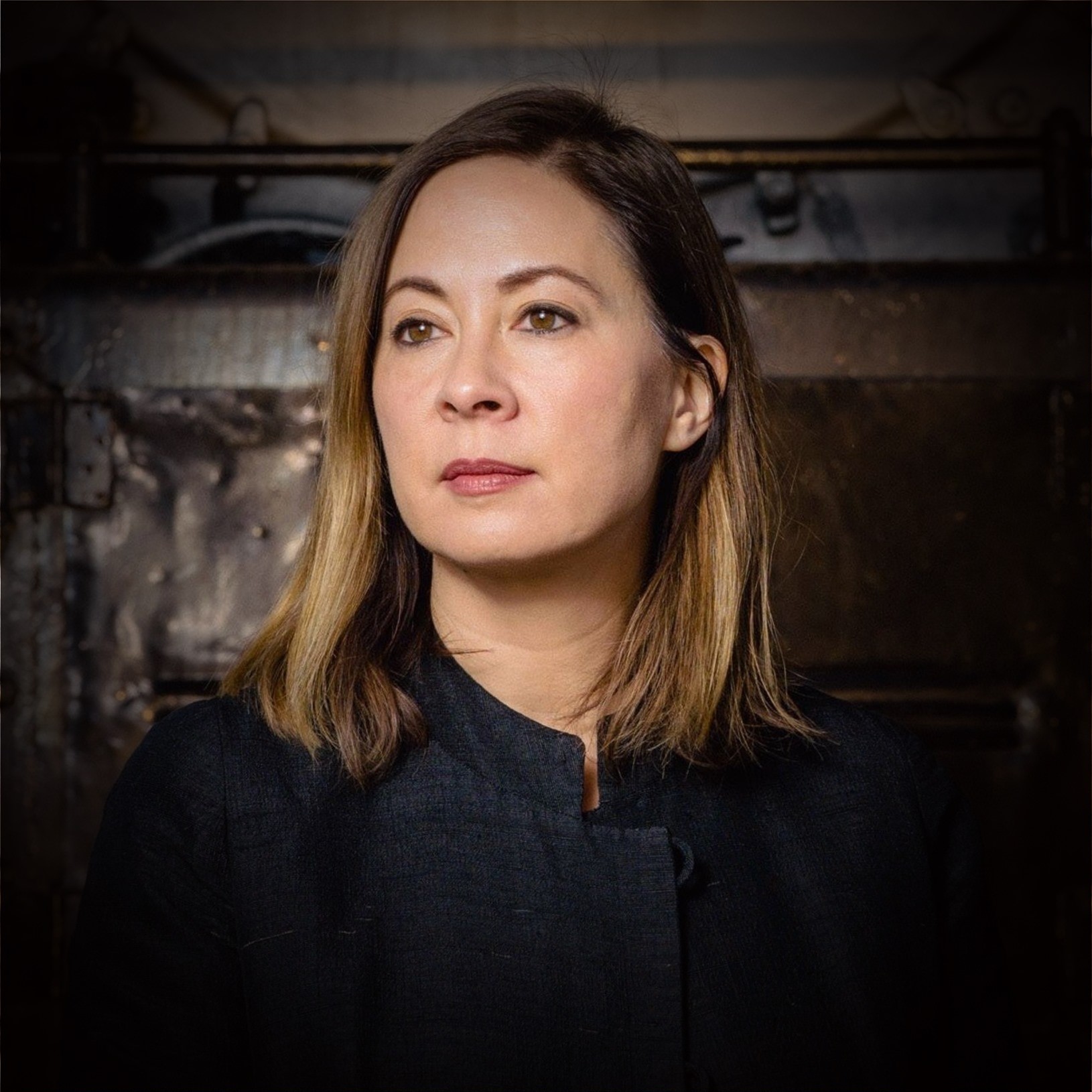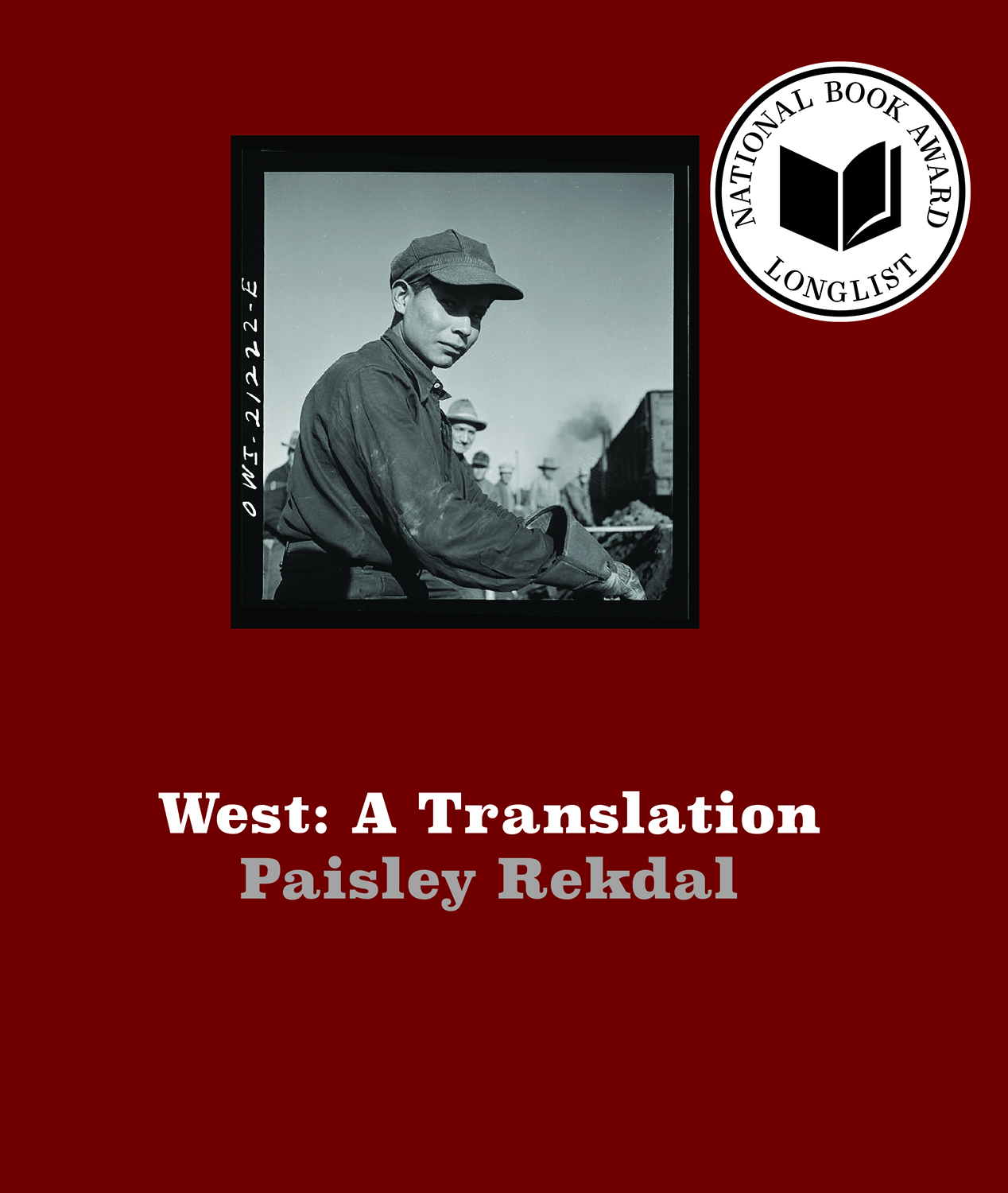Come waves of men with capital; come broadcloths, silks, leghorns, crapes, all the refinementsthe train ushers into each village, and the settler revolts, pushes into the interior, fleeswhat’s turned to edifices of brick, orchards, gardens, colleges, churches: roll insteadwestward into the frontier’s crucible in which all former servants of Europebecome American. Without the war cry of Cheyenne and Iroquois,would we be ourselves? Would we have battled, consolidated, traded, made selfand liberty our germs of government? Would we have stayedand called home the lands of the upper Yadkin had they remained untamedby farm and corncrib, their timbers not made girdled, deadened, fenced?The West is too much for any man. It takes himfrom board room and steam engine and loses him to birch bark canoe. We see a mountainand level it; we see a plain spread out like a meadowto overrun; nature the fault and fall line we trace to our nextdestination, following the arteries of our nation’s geology: lost shoresof inland seas, shale scarps and carapaces carved from eastern Kentucky.All now replaced by these joins and joints of an iron nervous system.Again and again, we return to the primitive line which we alone believemarks progress; history does not move only forward for the American, but back. The settlerwill not settle his desires, and so the soul of our country stays restless, nervous, intolerantof administrative experience and education; hews to the press of private liberty, which knowsno bounds, gives few benefits, risks government laxity and a spoils system.We are Boone. We are Kit Carson. Hunter, trader, occupant of the moment. We are the landwe can’t forget once thrived without us. This is America, at the endof a hundred years of life under the Constitution.The train is here. Our frontier is gone.
知 / Know
Frederick Jackson Turner, lecture to the American HistoricalAssociation, 1893
“Know” is part of a book-length sequence of poems entitled West: A Translation that “translates” a Chinese elegy carved by an anonymous writer into the walls of Angel Island Immigration Station sometime during the Chinese Exclusion Act. I use this elegy as the frame-text to reimagine the history of the transcontinental railroad, and the railroad’s cultural impact on American culture as a whole. West also comes with a digital companion of video poems that readers can access and play. You can click here to access the video rendition of “Know.”’
Feature Date
- March 30, 2024
Series
Selected By
Share This Poem
Print This Poem
“知 / Know” from WEST: A TRANSLATION: by Paisely Rekdal.
Published by Copper Canyon Press on May 2, 2023.
Copyright © 2023 by Paisley Rekdal.
All rights reserved.
Reproduced by Poetry Daily with permission.

Paisley Rekdal is the author of four books of nonfiction, and seven books of poetry, including Nightingale, Appropriate: A Provocation, and, most recently, West: A Translation, which was longlisted for the National Book Award and won the 2024 Kingsley Tufts Poetry Award. She is the editor and creator of the digital archive projects West, Mapping Literary Utah, and Mapping Salt Lake City. Her work has received the Amy Lowell Poetry Traveling Fellowship, a Guggenheim Fellowship, an NEA Fellowship, Pushcart Prizes, the Academy of American Poets Laureate Fellowship, a Fulbright Fellowship, and various state arts council awards. The former Utah poet laureate, she teaches at the University of Utah where she directs the American West Center.
“Through these poems, readers are asked to wrestle with the complex, layered histories of race, creed, class, and gender that are all too often overlooked in monolithic presentations of America’s past and present. Elegiac and shot through with righteous anger, this essential collection demands a national reckoning.”
—Publishers Weekly
“Paisley Rekdal has always been a breathtakingly ambitious poet, and this is her most ambitious book so far — a work of seamlessly blended poetry and history. In lyric poems in many forms and spoken through many voices, as well as in corresponding essays, Rekdal traces and grieves the sorrowful politics that link the building of the transcontinental railroad and the Chinese Exclusion Act of 1882 (‘Congress had to pass an act/ to make the building stop’). She excavates an American shame that has yet to be reckoned with, though this extraordinary book, which finds a fresh purpose for poetry as a reliquary of evidence, perhaps makes a start.”
—Craig Morgan Teicher
Poetry Daily Depends on You
With your support, we make reading the best contemporary poetry a treasured daily experience. Consider a contribution today.




